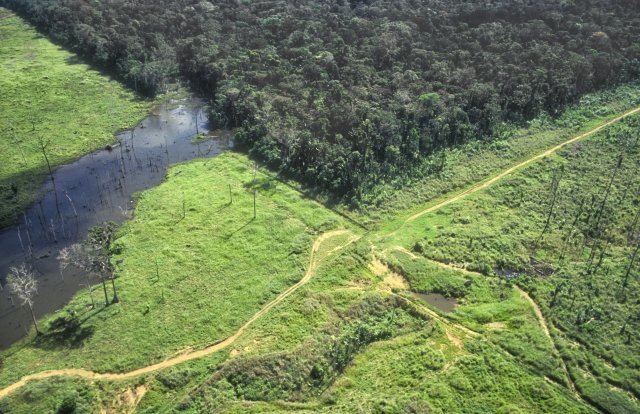The British Guardian reported on the 6th (local time) that the Brazilian Amazon rainforest is being destroyed to produce collagen, which is known to be effective in preventing skin aging.
According to reports, the market size of collagen reaches 4 billion dollars (approximately 5.26 trillion won) a year. 80% of the destruction of the Amazon rain forest is related to cattle farming, which supplies animal collagen. Accordingly, the media pointed out that the more the demand for collagen increases, the more rainforests will be destroyed.
As a result of a joint investigation by the Guardian with the non-profit media organization Investigative Reporting Agency (BIJ), the non-profit investigative organization Climate Crime Analysis Center (CCCA), British broadcaster ITV, etc., cattle raised on a ranch made by destroying Brazilian forests are processed in a slaughterhouse connected to the international collagen supply chain. It is becoming.
Some of the collagen supplied here goes into Nestlé’s ‘Vital Protein’, a major producer of bovine collagen. Collagen products made by this company are sold all over the world.
Nestlé said claims that growing demand for collagen is damaging the Amazon rain forest go against its policy of “responsible sourcing”. At the same time, he added that he set a goal of securing a product that does not affect deforestation at all by 2025 and is in the process of doing so.
 Amazon deforestation. Reference photos not directly related to the article. Getty Images
Amazon deforestation. Reference photos not directly related to the article. Getty ImagesCurrently, collagen suppliers are not obligated to investigate the environmental impact of their collagen production process. Collagen is not included in the regulations promoted by the EU and the UK to prevent deforestation in Brazil. Accordingly, even in a situation where environmental damage is concerned due to the expansion of collagen demand, related companies do not take any responsibility.
Some even suspect that the efficacy of collagen has been overestimated. According to the Harvard School of Public Health, some of the research on the efficacy of collagen was carried out with research funding from related companies. It is pointed out that the efficacy of collagen may have been intentionally emphasized as the fund was supported.
Source: Donga
Mark Jones is a world traveler and journalist for News Rebeat. With a curious mind and a love of adventure, Mark brings a unique perspective to the latest global events and provides in-depth and thought-provoking coverage of the world at large.